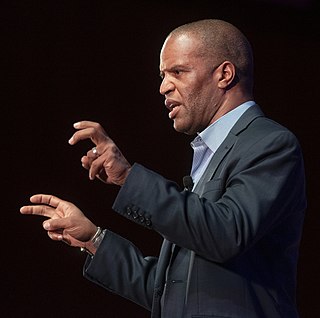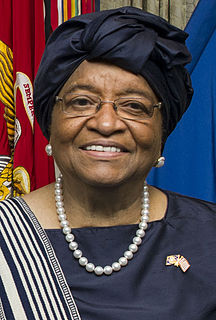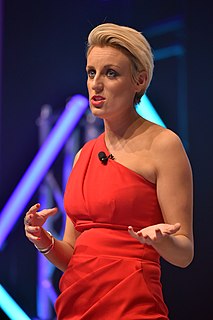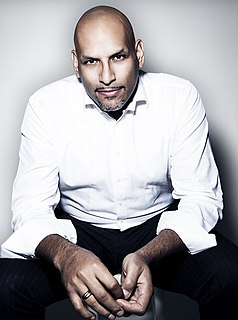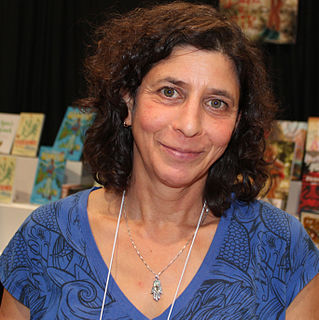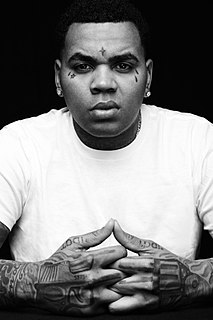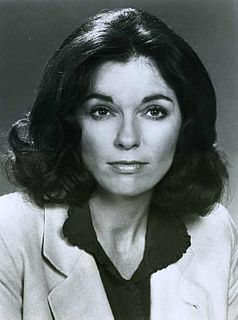Top 368 Literacy Quotes & Sayings - Page 6
Explore popular Literacy quotes.
Last updated on November 8, 2024.
I've found that no one complains about pop culture being a source of someone lecturing to them. If someone's telling you about Kim Kardashian, you're not going to accuse them of lecturing to you. If I can explore an intersection between pop culture and science literacy, then it generally will not come across as a lecture.
We [Black people] have always used our creativity to battle and we're not the only ones. Black Americans are certainly leaders in that simply because we were denied education and dealt with enforced illiteracy. But people seem to always forget that literacy is not the only way of learning things or conveying knowledge.
Dr. King organized the Poor People's Campaign in 1968 to shut down Washington, D.C. and force legislators to tackle poverty. His efforts to shift focus from civil to silver rights were interrupted by his untimely death. He fought ardently for Black rights, but he also recognized financial literacy as the key to an America that was truly free for all people.
Once he could read and write he would have a mind fit to rule. So ran the democratic doctrine. But instead of a mind, universal literacy has given him rubber stamps, rubber stamps inked with advertising slogans, with editorials, with published scientific data, with the trivialities of the tabloids and the platitudes of history, but quite innocent of original thought.
Even in areas like the most depressed region of India in terms of female education, namely Rajasthan, which has [one of] the lowest female literacy [rates] in India. Even there, 80 to 90 percent of the parents would like their girls to go to school. And indeed, about 80 percent would like them to be made compulsory.
Wherever they went the Irish brought with them their books, many unseen in Europe for centuries and tied to their waists as signs of triumph, just as Irish heroes had once tied to their waists their enemies' heads. Where they went they brought their love of learning and their skills in bookmaking. In the bays and valleys of their exile, they reestablished literacy and breathed new life into the exhausted literary culture of Europe. And that is how the Irish saved civilization.
The 20th of March in 1964, I went before the Secretary of State to qualify to run as an official candidate for Congress from the 2nd Congressional District, and it was easier for me to qualify to run than it was for me to pass the literacy test to be a registered voter. And we had four people to qualify and run in the June primary election be we didn't have enough Negroes registered in Mississippi.
Most people are excited about themselves. Personal genome will deliver for inexpensively something about science to which you can relate. Just like computers are becoming something to which you can relate. It should be even easier to relate to your own biology, and I hope that will be one of the ways we get broader literacy in science.
If development was measured not by gross national product, but a society's success in meeting the basic needs of its people, Vietnam would have been a model. That was its real "threat." From the defeat of the French at Dien Bien Phu in 1954 to 1972, primary and secondary school enrollment in the North increased sevenfold, from 700,000 to almost five million. In 1980, UNESCO estimated a literacy rate of 90 percent and school enrollment among the highest in Asia and throughout the Third World.
Part of me loves and respects men so desperately, and part of me thinks they are so embarrassingly incompetent at life and in love. You have to teach them the very basics of emotional literacy. You have to teach them how to be there for you, and part of me feels tender toward them and gentle, and part of me is so afraid of them, afraid of any more violation.
He [Hugo Chavez] put poverty at the heart of political debate. Rightly so, given the country's immense inequality and poverty. He invested heavily in social programs such as literacy, health clinics, and education. He promoted Venezuela's indigenous culture and urged compatriots to take pride in its pre-Columbian history. He called time on the US treating Latin America as its backyard.
I think the money for the solutions for global poverty is on Wall Street. Wall Street allocates capital. And we need to get capital to the ideas that are successful, whether it's microfinance, whether it's through financial literacy programs, Wall Street can be the engine that makes capital get to the people who need it.
When NASA makes discoveries they are profound and they make headlines, everyone takes notice. It drives dialogue and, today, it would drive the blogosphere. It would drive the projects the kids do in school. So you wouldn't even need programs to try and stimulate curiosity. You wouldn't need programs to try to convince people that science literacy is good. Because they're going to want to participate on this epic adventure that we call space exploration.
Combining the lack of emotional literacy they may be imbued with, with the fact that if you're black you're not supposed to be that smart and if you... as a boy you're not even supposed to like school. All of the sudden you've got kids who are afraid, black kids and Latino kids who are afraid to be great, afraid to bask in the enjoyment of education, lest they be labeled less than black, less than Latino, less they be called the oreo.
Not enough of our society is trained how to understand and interpret quantitative information. This activity is a centerpiece of science literacy to which we should all strive-the future health, wealth, and security of our democracy depend on it. Until that is achieved, we are at risk of making under-informed decisions that affect ourselves, our communities, our country, and even the world.
According to UNESCO: there are over 154 million children in the world deprived of education due to poverty, slavery, racism, religious extremism, gender discrimination, and geographical isolation. The cost to educate a child in the third world is about $ 1 per month per child. To achieve global literacy, the investment would be $ 8 billion per year for 15 years.
People of good character are not all going to come down on the same side of difficult political and social issues. Good people - people of character and moral literacy - can be conservative, and good people can be liberal. We must not permit our disputes over thorny political questions to obscure the obligation we have to offer instruction to all our young people in the area in which we have, as a society, reached a consensus: namely, on the importance of good character, and some of its pervasive particulars.
Some people have argued that listening to a work of literature does not really promote literacy in the same way that reading does. Having tried this for several months, however, I can report from the trenches that, for me, immersive listening is as intellectually challenging, stimulating, and rewarding as immersive reading.
Emotional 'literacy' implies an expanded responsibility for schools in helping to socialize children. This daunting task requires two major changes: that teachers go beyond their traditional mission and that people in the community become more involved with schools as both active participants in children's learning and as individual mentors.
The major accomplishment of analyzing illiteracy so far has been the listing of symptoms: the decrease in functional literacy; a general degradation of writing skills and reading comprehension; an alarming increase of packaged language (cliches used in speeches, canned messages); and a general tendency to substitute visual media (especially television and video) for written language.
The average person doesn't understand what a stem cell is. There's a lack of health literacy in our nation. So the public can't really get into this dialogue because they don't understand the complexity of stem cells, not the faith-based approach, not the ideological or political, but the science behind stem cells.
When I ran for governor, I talked about the disenfranchisement of voters. I talked about the history that we've had. We've had a horrible history here in Virginia going back to 1901 - the poll tax, literacy tests, disenfranchisement of felons. We're one of the worst four states in America on allowing people back in with voting rights.
It only takes about 50 contact hours to transmit basic literacy and math skills well enough that kids can be self-teachers from then on. The cry for 'basic skills' practice is a smokescreen behind which schools pre-empt the time of children for twelve years and teach them the six lessons I've just taught you.
Educators, long disturbed by schoolchildren's lagging scores in math and reading, are realizing there is a different and more alarming deficiency: emotional literacy. And while laudable efforts are being made to raise academic standards, this new and troubling deficiency is not being addressed in the standard school curriculum. As one Brooklyn teacher put it, the present emphasis in schools suggests that "we care more about how well schoolchildren can read and write than whether they'll be alive next week."
It is not a coincidence that we have managed to send rockets into space, but our literacy rate continues to be below the world average. It is because governments don't want an educated electorate. Because if we get educated, we will start asking the right questions. And they don't want the right questions being asked.
Over the years, I have become convinced that Hellenism as a culture represents not a static condition of uniform sublimity mysteriously achieved and maintained as an effect of some racial advantage. Rather it should be understood as an evolving process, governed by a dynamic of change, as both language and thought underwent transformational alteration caused by a transition from orality to literacy. The instrument of change is discerned to be the invention of the Greek alphabet, at a quite late stage in the history of developing cultures.
The rise of casino capitalism and the punishing state with their vast apparatuses of real and symbolic violence must be also addressed as part of a broader historical and political attack on public values, civic literacy and economic justice. Crucial here is the need to engage how such an attack is aided and abetted by the emergence of a poisonous neoliberal public pedagogy that depoliticizes as much as it entertains and corrupts.
Film theory has nothing to do with film. Students presumably hope to find out something about film, and all they will find out is an occult and arcane language designed only for the purpose of excluding those who have not mastered it and giving academic rewards to those who have. No one with any literacy, taste or intelligence would want to teach these courses, so the bona fide definition of people teaching them are people who are incapable of teaching anything else.
PowerPoint presentations, the cesspool of data visualization that Microsoft has visited upon the earth. PowerPoint, indeed, is a cautionary tale in our emerging data literacy. It shows that tools matter: Good ones help us think well and bad ones do the opposite. Ever since it was first released in 1990, PowerPoint has become an omnipresent tool for showing charts and info during corporate presentations.
Bush has not read enough books to have a developed moral sense. The fewer books you read, the easier it is to become fundamental. In some ways my antiwar stand here is also a stand on anti-literacy. Someone should get G.W. into a reading program, get him to join a book club. Have him read Hamlet, King Lear.
While we bemoan the decline of literacy, computers discount words in favor of pictures and pictures in favor of video. While we fret about the decreasing cogency of public debate, computers dismiss linear argument and promote fast, shallow romps across the information landscape. While we worry about basic skills, we allow into the classroom software that will do a student's arithmetic or correct his spelling.
Basically, you're still sitting there using just the muscles of your hand, really. Of one hand, actually. It's another example of the transfer of literacy to making music because the assumption is that everything important is happening in your head; the muscles are there simply to serve the head. But that isn't how traditional players work at all; musicians know that their muscles have a lot of stuff going on as well. They're using their whole body to make music, in fact.
Education as a democratic project always presupposes a vision of the future in its introduction to, preparation for, and legitimation of particular forms of social life. It is utopian in its goal of expanding and deepening the ideological and material conditions that make a democracy possible. As a moral and political practice, education produces the modes of literacy, critique, sense of social responsibility, and civic courage necessary to imbue young people with the knowledge and skills needed to enable them to be engaged critical citizens willing to fight for a sustainable and just society.
No government has the right to decide on the truth of scientific principles, nor to prescribe in any way the character of the questions investigated. Neither may a government determine the aesthetic value of artistic creations, nor limit the forms of literacy or artistic expression. Nor should it pronounce on the validity of economic, historic, religious, or philosophical doctrines. Instead it has a duty to its citizens to maintain the freedom, to let those citizens contribute to the further adventure and the development of the human race.
Let's be clear about what Common Core is. It spells out what students should know at the end of each grade. The goal is to ensure that our students are sound in math and literacy and that our schools have some basic consistency nationwide. But the standards do not dictate a national curriculum, and teachers are not told how or what to teach.
Computer literacy is a contact with the activity of computing deep enough to
make the computational equivalent of reading and writing fluent and enjoyable.
As in all the arts, a romance with the material must be well under way. If
we value the lifelong learning of arts and letters as a springboard for
personal and societal growth, should any less effort be spent to make computing
a part of our lives?
Heaven, Kiwi thought, would be the reading room of a great library. But it would be private. Cozy. You wouldn't have to worry about some squeaky-shoed librarian turning the lights off on you or gauging your literacy by reading the names on your book spines, and there wouldn't be a single other patron. The whole place would hum with a library's peace, filtering softly over you like white bars of light.
They've been screaming about the death of literacy for years, but I think TV is the Gutenberg [printing] press. I think TV is the only thing that keeps us vaguely in democracy even if it's in the hands of the corporate culture. If you're an artist you write in your time. Moaning about the fact that maybe people read more books a hundred years ago - that's not true. I think the same percentage has always read.
One thing the humanitarian world doesn't do well is marketing. As a journalist, I get pitched every day by companies that have new products. Meanwhile, you have issues like clean water, literacy for girls, female empowerment. People flinch at the idea of marketing these because marketing sounds like something only companies do.
We don't want to be simply wandering about without some kind of reason, we want our presence here to have a purpose, and that we are not going to end here, we are going to proceed somewhere else, and also that we didn't begin here, that we began somewhere else and all that living, all that elaborate account of our presence seems to be quite basic to our nature and so this is what literacy taps into.
What are we going to do as automation increases, as computers get more sophisticated? One thing that people say is we'll retrain people, right? We'll take coal miners and turn them into data miners. Of course, we do need to retrain people technically. We need to increase technical literacy, but that's not going to work for everybody.
South Korea from a country that had relatively little primary education became close to universal literacy in the course of 25, 30 years, in a way trying to replicate what Japan had done earlier. They were learning to some extent from the Japanese experience too. So I think, in a sense, the East Asians were following a path, which all other countries including South Asia could follow but chose not too.
As work in neurosciences indicates, the acquisition of literacy necessitated a new circuit in our species' brain more than 6,000 years ago. That circuit evolved from a very simple mechanism for decoding basic information, like the number of goats in one's herd, to the present, highly elaborated reading brain.
Emotional Literacy means being able to recognise what you are feeling, so that it doesn't interfere with thinking. It becomes another dimension to draw upon when making decisions or encountering situations. Emotional expression by contrast can mean being driven by emotions, so that it isn't possible to think. These two things are often confused, because we are still uncomfortable with the idea of the validity of feelings.
I think there in a great deal to be said for religious education in the sense of teaching about religion and biblical literacy. Both those things, by the way, I suspect will prepare a child to give up religion. If you are taught comparative religion, you are more likely to realise that there are other religions than the one you have been brought up in. And if you are if you are taught to read the bible, I can think of almost nothing more calculated to turn you off religion.
I have always had a special affinity for libraries and librarians, for the most obvious reasons. I love books. (One of my first Jobs was shelving books at a branch of the Chicago Public Library.) Libraries are a pillar of any society. I believe our lack of attention to funding and caring for them properly in the United States has a direct bearing on problems of literacy, productivity, and our inability to compete in today's world. Libraries are everyman's free university.



